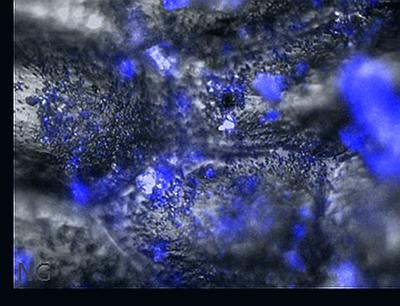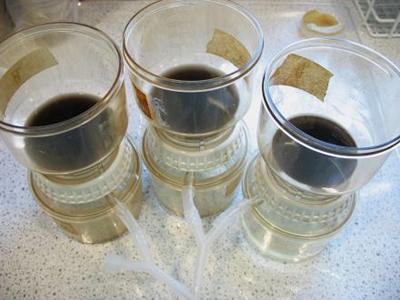Here at the EHU we are investigating biofilm and pathogen colonisation of leafy salads in collaboration with Vitacress Salads Ltd., in order to further the limited understanding of microbial interactions with leaves, and ultimately to develop novel decontamination strategies for use in the fresh produce industry.

Microbial populations associated with fresh produce are important determinants of both food safety and quality. The leaf surface (the phylloplane) at first appears a hostile environment for bacterial existence, but leaves are routinely host to large and diverse microbial communities.
Through the use of traditional microbiology methods, advanced light microscopy (EDIC/EF) and more recently, molecular technologies, we are investigating the attachment and colonisation of salad leaves by pathogens such as Salmonella and Escherichia coli, biofilm formation by these pathogens and their interaction with autochthonous phylloplane biofilms, and the use of novel molecular and physical methods for removal of biofilms from leaf surfaces for improvement of food safety and quality.
Furthermore, a new PhD project within the EHU focuses on the development of new treatments to decontaminate the salad leaf phylloplane of foodborne pathogens in order to enhance food saftey. This work is characterising the way in which foodborne pathogens Escherichia coli O157:H7 and Listeria monocytogenes interact with the leaf surface as biofilms and in the viable but non-culturable (VBNC) state. The resistance of the bacteria to conventional sanitisers will be assessed and the roles of nitric oxide and cis-2-decenoic acid in biofilm dispersal will be investigated for their potential to be applied to crops to decontaminate them in an industrial setting.

Links to external websites
The University cannot accept responsibility for external websites.